Irrigation workers (Trieu Son Irrigation Branch) collect waste to ensure environmental sanitation and clear water sources for production and people's daily activities. Photo: HT
1. Mr. Le Van Hoa (45 years old) has been working in the irrigation industry for 21 years. Before that, he worked for 5 years at another unit also operating in the irrigation field. In 2011, Mr. Hoa applied to work at Trieu Son Irrigation Branch, Song Chu LLC. The past 21 years have been 21 years that Mr. Hoa has been "anchoring" himself with the hard, tiring but also meaningful and admirable job of an irrigation worker.
One morning like many other mornings, Mr. Hoa and several other irrigation workers gathered, quickly discussed the work of the day, and then got to work. With a gentle, hard-working, and highly responsible personality, Mr. Hoa was trusted to take on the position of deputy cluster leader of Tho Ngoc cluster (Trieu Son Irrigation Branch). In addition to performing the same tasks as his brothers, he and the cluster leader jointly managed and assigned specific tasks to each group.
To meet the requirements and workload, irrigation workers must be people who possess all the following qualities: diligent, not afraid of hardship, patient, and multi-talented.
An irrigation worker has to undertake many different tasks: leading water from pumping stations to farmers' fields, ensuring enough water for planting in the right season; draining water when there is flooding; maintaining and repairing canal and water drainage systems; clearing canal banks, clearing water flows, patching canals... But perhaps, one of the most time-consuming, laborious and stressful jobs for irrigation workers like Mr. Hoa is the job of blocking and collecting trash at irrigation works and systems.
In the scorching hot weather, Mr. Hoa and his colleagues in the cluster put on thick protective clothing, masks, and work gloves and started to "go out" to "patrol the canal"... Mr. Hoa said: "We usually work in groups, each group has 3-4 people. Tho Ngoc cluster has 4 garbage collection points, the brothers spread out to the points, one person walking an average of 20-30km is normal". It is known that Tho Ngoc cluster is not a "hot spot" for garbage, but on average, each irrigation worker collects about 4-5 tons of garbage a day, mainly relying on "human strength" and some rudimentary tools such as hoes, rakes, shovels, rackets, tridents... During rain and storms, engineers and irrigation workers are on duty 24/7 at assigned locations. During holidays and Tet, the amount of waste increases dramatically, so we have to work harder to meet the demands and workload.
Garbage gathered here is of all kinds: household waste, agricultural waste... smelly, dirty, toxic. But perhaps the most haunting thing for the irrigation workers are the animal carcasses. Mr. Hoa joked: "A live chicken weighs about 2-4kg, but after being soaked in water for several days and floating to the end of the canal, it will swell up to twice its size. A bloated, heavy pig carcass floating on the canal has a terrible stench. After processing it, people will feel dizzy and some will get sick." Whether it is household waste or animal carcasses, if it has gone down the canal or ditch, the irrigation workers must handle it. For small animal carcasses, we scoop them up and bury them. For large animal carcasses, we report to the unit leaders, ask for a crane to lift them up and then destroy them."
Through stories on the way to collect trash, Mr. Hoa confided: "Not only me but also my wife is working in the irrigation industry. With an average income of about 5-7 million VND/person, we try to save up to take care of our children's education but we don't have any left over." But they always feel happy because they are doing useful work for society, contributing their efforts to clean and beautify rivers, ensuring water flow for production and daily life of the people. "However, sometimes, we also feel sad because some people still do not raise their awareness of environmental protection, still litter indiscriminately into rivers and irrigation works for temporary conveniences," Mr. Hoa confided.
2. Ms. Ngo Thi Minh Hoa (34 years old, Loc Giang cluster, Thanh Hoa City Irrigation Branch) has been working as an irrigation worker for more than 10 years. Ms. Hoa's working day usually starts from around 6:00 a.m. until 8:00 p.m. Her work is not fixed but depends on the assignment and arrangement of the cluster and team leader, often combining many tasks during the day.
Irrigation workers (Thanh Hoa City Irrigation Branch) collect and treat waste after scooping it up from the bottom of irrigation canals and ditches. Photo: HT
Like other irrigation workers, the most time-consuming and laborious part of Ms. Hoa's work is collecting garbage on canals and ditches. Ms. Hoa shared: Loc Giang cluster has 2 "hot spots" of garbage that for many years, the company and branch leaders have always paid attention to, increased the deployment of monitoring forces, and continuously "patrolled the canals", which are: Mat Son siphon, railway siphon. On average, Loc Giang cluster irrigation workers collect about 16 garbage trucks a day, each truck contains about 0.7 cubic meters of garbage. For types of waste that can be treated immediately, Ms. Hoa and her colleagues in the group pile them up and burn them. For types of waste that cannot be treated immediately, they will contact specialized environmental units to collect them according to regulations.
Ms. Hoa pondered: “Anyone who has been involved in the profession of irrigation workers is all too familiar with the hardships, difficulties, pollution, and toxicity. But sometimes when thinking about it, irrigation workers have to directly scoop, collect, and process all kinds of toxic waste every day, but there are no policies or regulations to support or encourage us. Hopefully, in the future, the company's leaders can research and consider so that we can enjoy the toxic regime. A small change in the company's mechanism and policies is a great source of encouragement, motivation, and recognition for us.”
3. According to statistics of Song Chu LLC, on average, each month, people illegally discharge 800m3 of waste into the irrigation canal system. If not handled promptly, the accumulated waste will cause serious environmental and water pollution; clog canals and ditches, making it impossible to ensure timely and stable water supply for production and daily life; and affect the safety of irrigation works.
Mr. Le Van Thuy, Chairman of the Board of Members of Song Chu LLC, said: “Waste is a burning issue for the whole society. In the past 5 years, the indiscriminate dumping of waste into rivers and irrigation works has decreased, but in general, it is still a difficult problem, posing many challenges. To solve this situation, the company has implemented many practical and effective solutions, including adding staff, arranging teams of irrigation workers to patrol the canal, continuously collecting and treating waste. They are truly the “hardworking bees”, worthy of respect in the irrigation industry.”
Irrigators, whether it is hot or rainy, they still regularly walk on the fields, canals, and ditches to ensure the water source is cleared for production and daily life of the people. However, a part of the people lack awareness and still blatantly dump all kinds of waste into the riverbed, canal system, and ditches, making their work even more difficult. The "war" with waste takes away a lot of their time and health. They have to work like real environmental workers without any benefits or allowances for that garbage collection job, including toxic benefits.
Protecting the environment is a common task of the whole society. Therefore, each citizen needs to raise awareness and responsibility even more. Littering will increase the burden and work pressure for people such as irrigation workers and environmental workers, seriously affecting the living environment of the whole community.
Thuy Duong - Huong Thao
Source: https://baothanhhoa.vn/nhung-nguoi-tham-lang-nbsp-lam-dep-dong-song-khoi-thong-nguon-nuoc-252548.htm


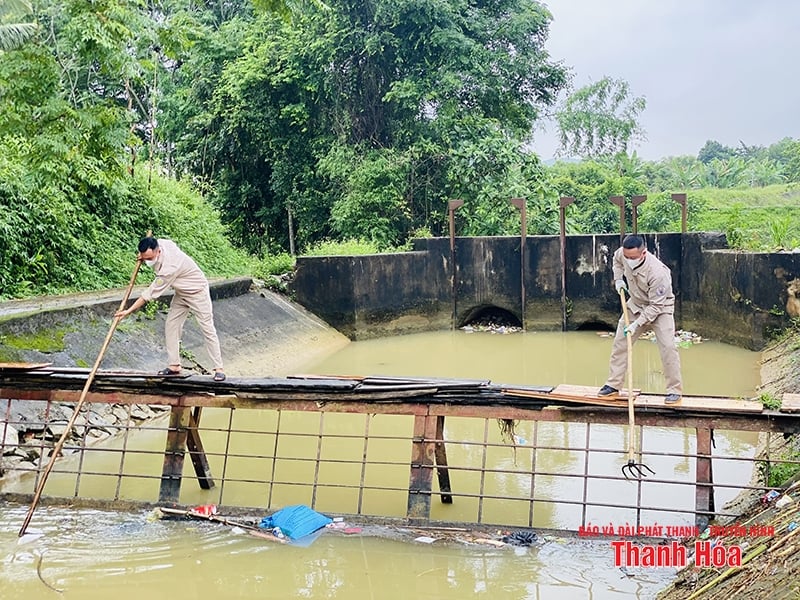
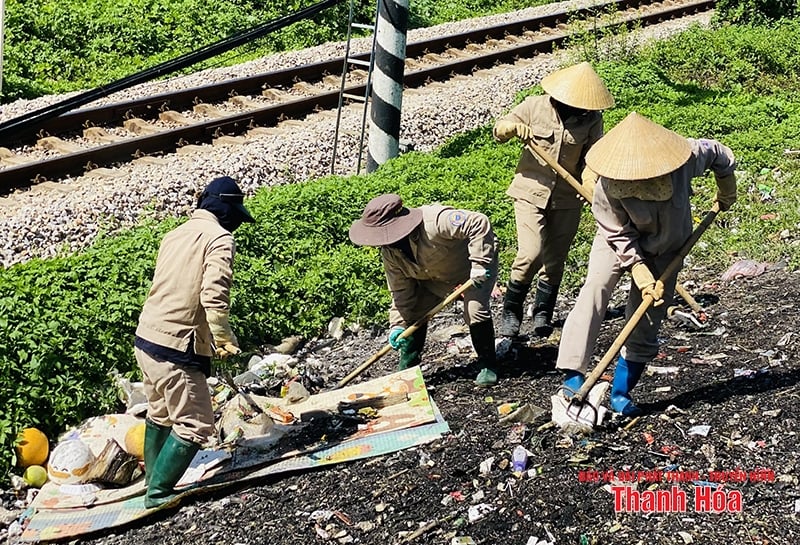




![[Photo] Da Nang: Hundreds of people join hands to clean up a vital tourist route after storm No. 13](https://vphoto.vietnam.vn/thumb/1200x675/vietnam/resource/IMAGE/2025/11/07/1762491638903_image-3-1353-jpg.webp)








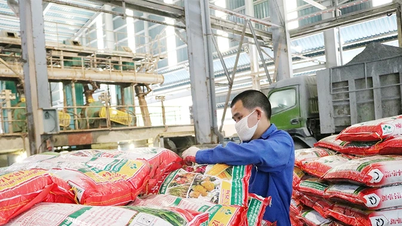


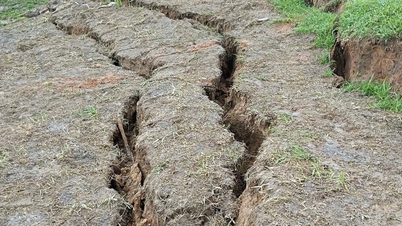




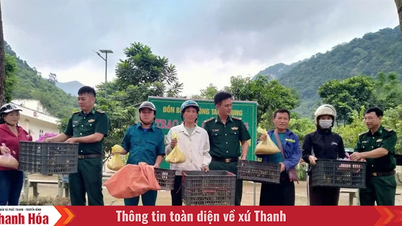


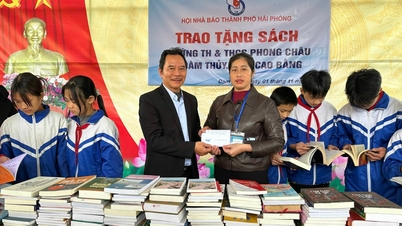





![[E-Magazine]: Winter comes, calling love back](https://vphoto.vietnam.vn/thumb/402x226/vietnam/resource/IMAGE/2025/11/07/1762519247877_e-magazine-dong-w1200t0-di2544d199d5163001t11920l1-v-128.webp)
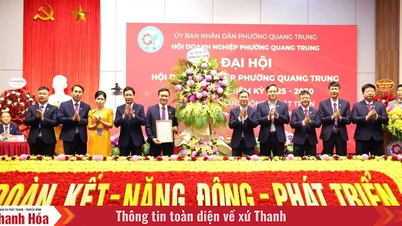


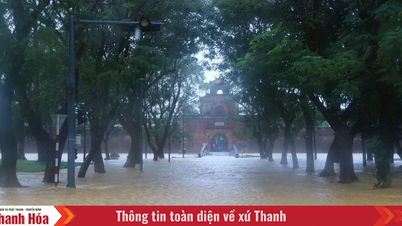




























































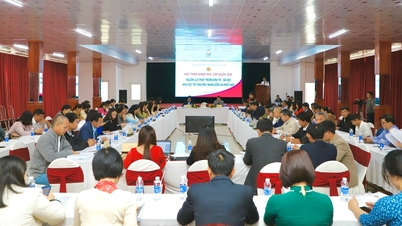














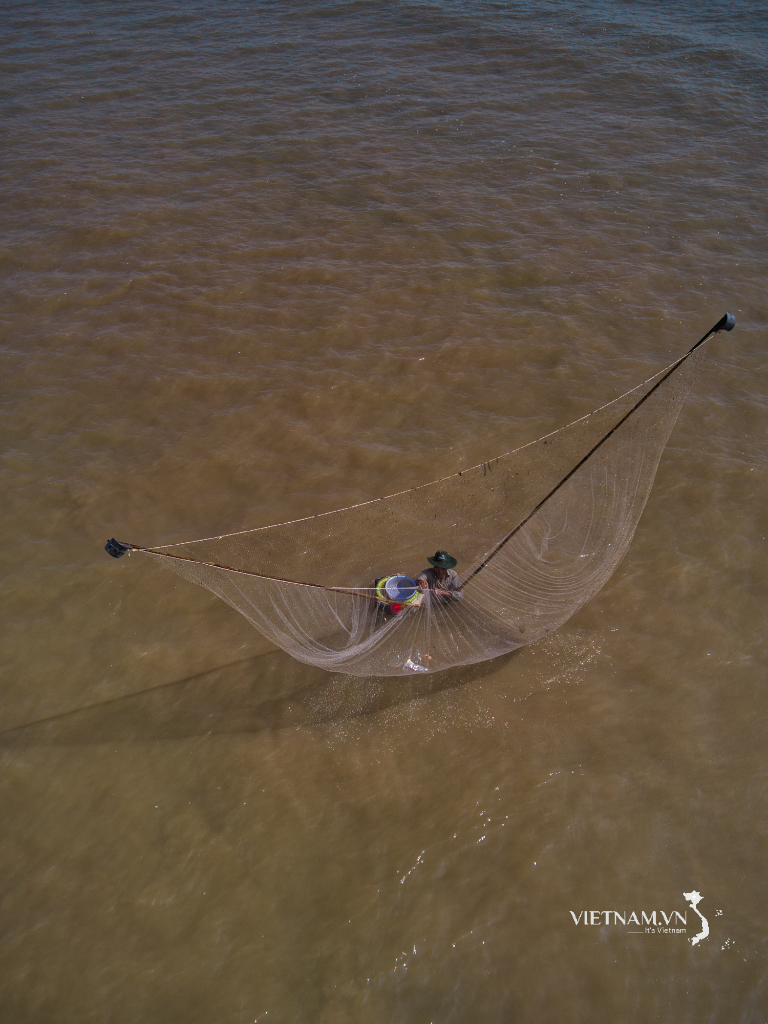

Comment (0)